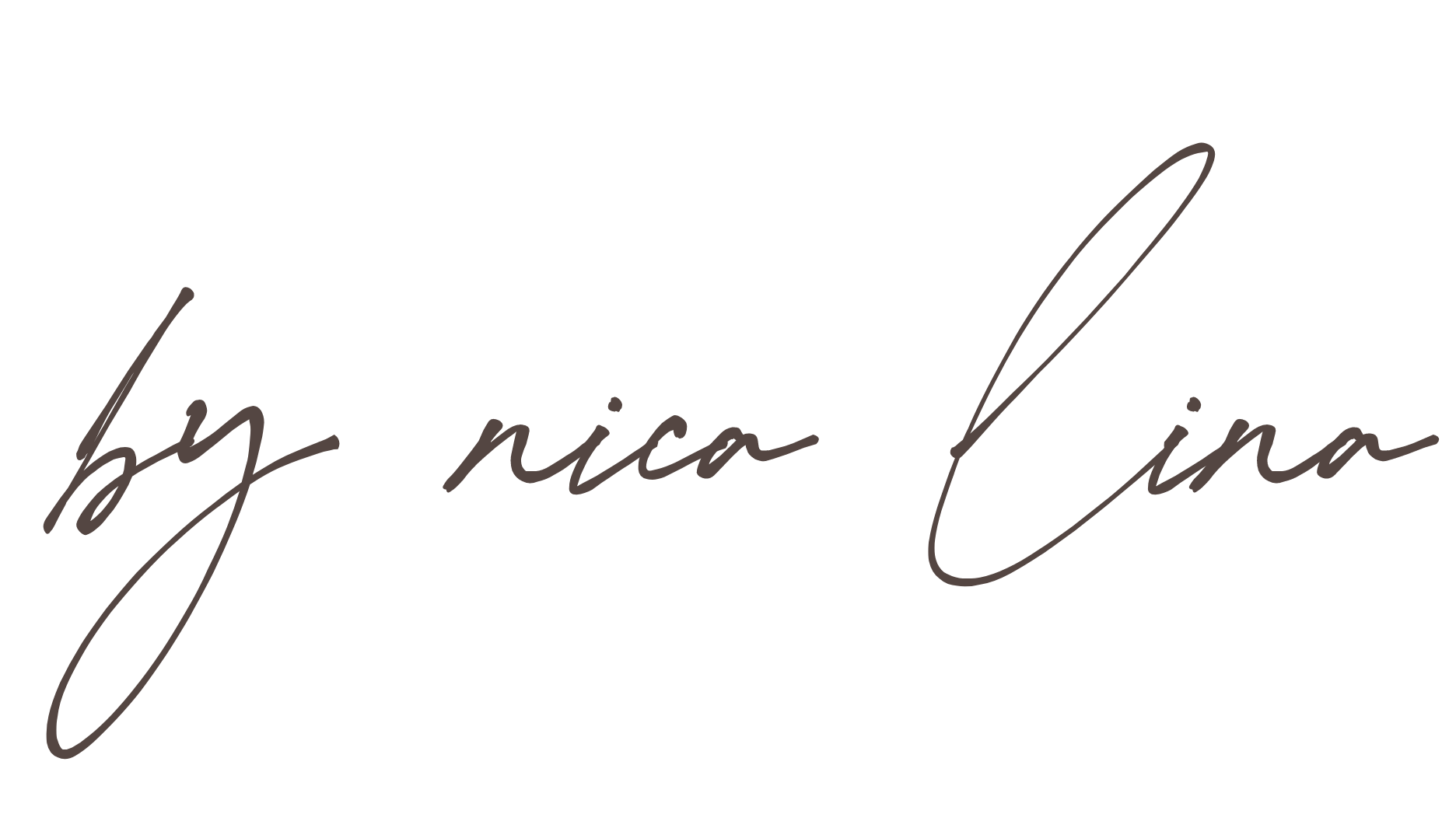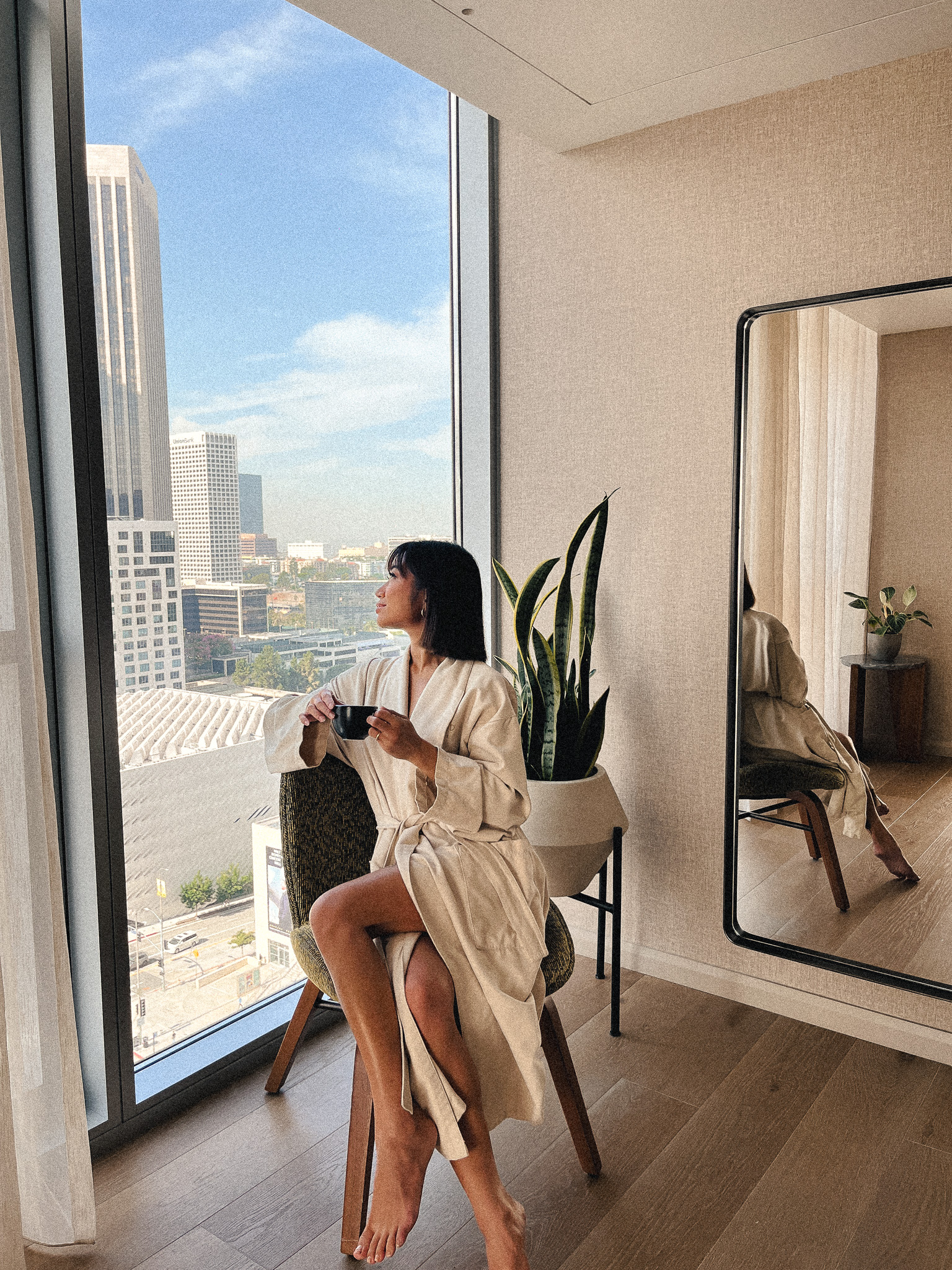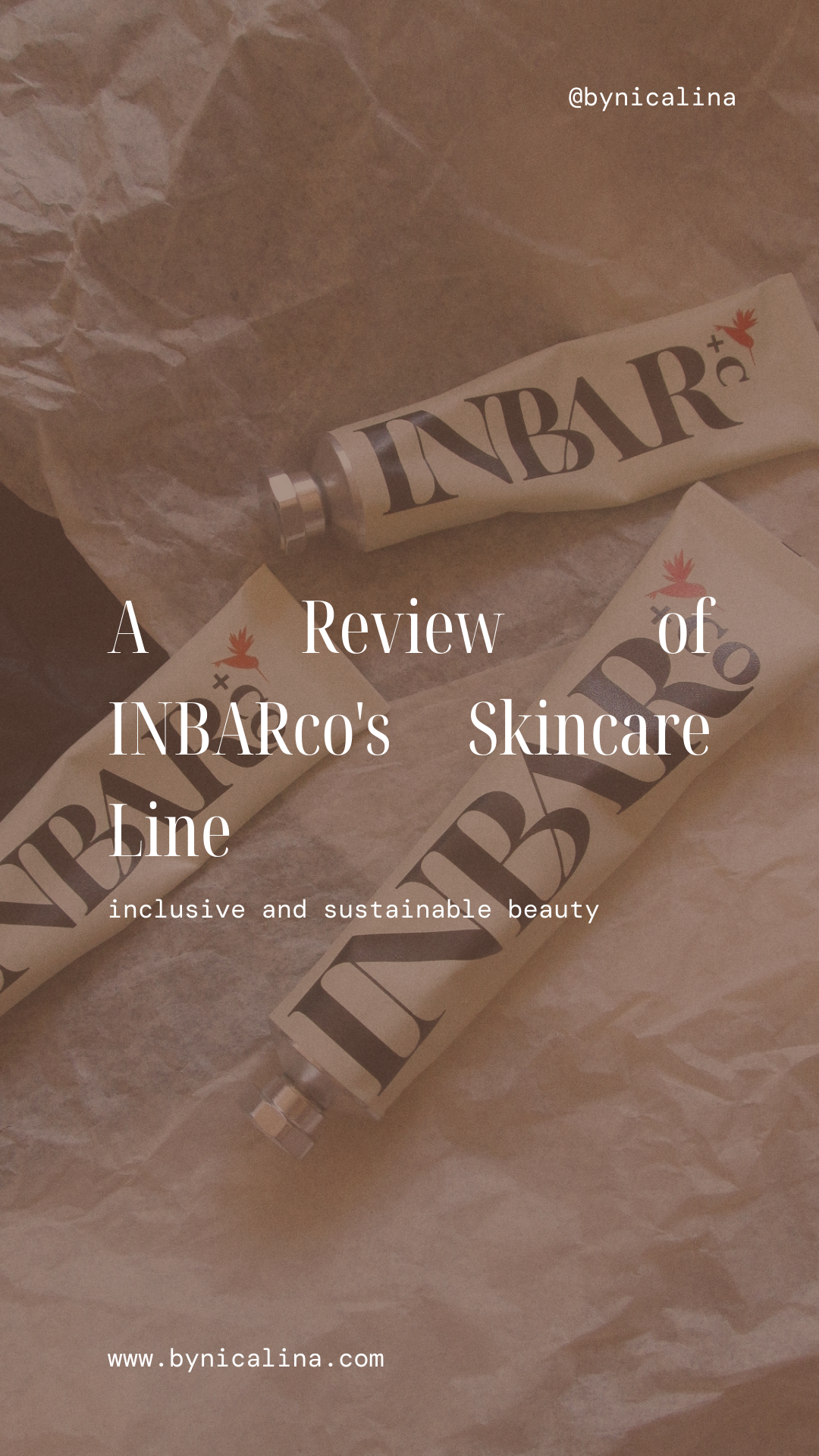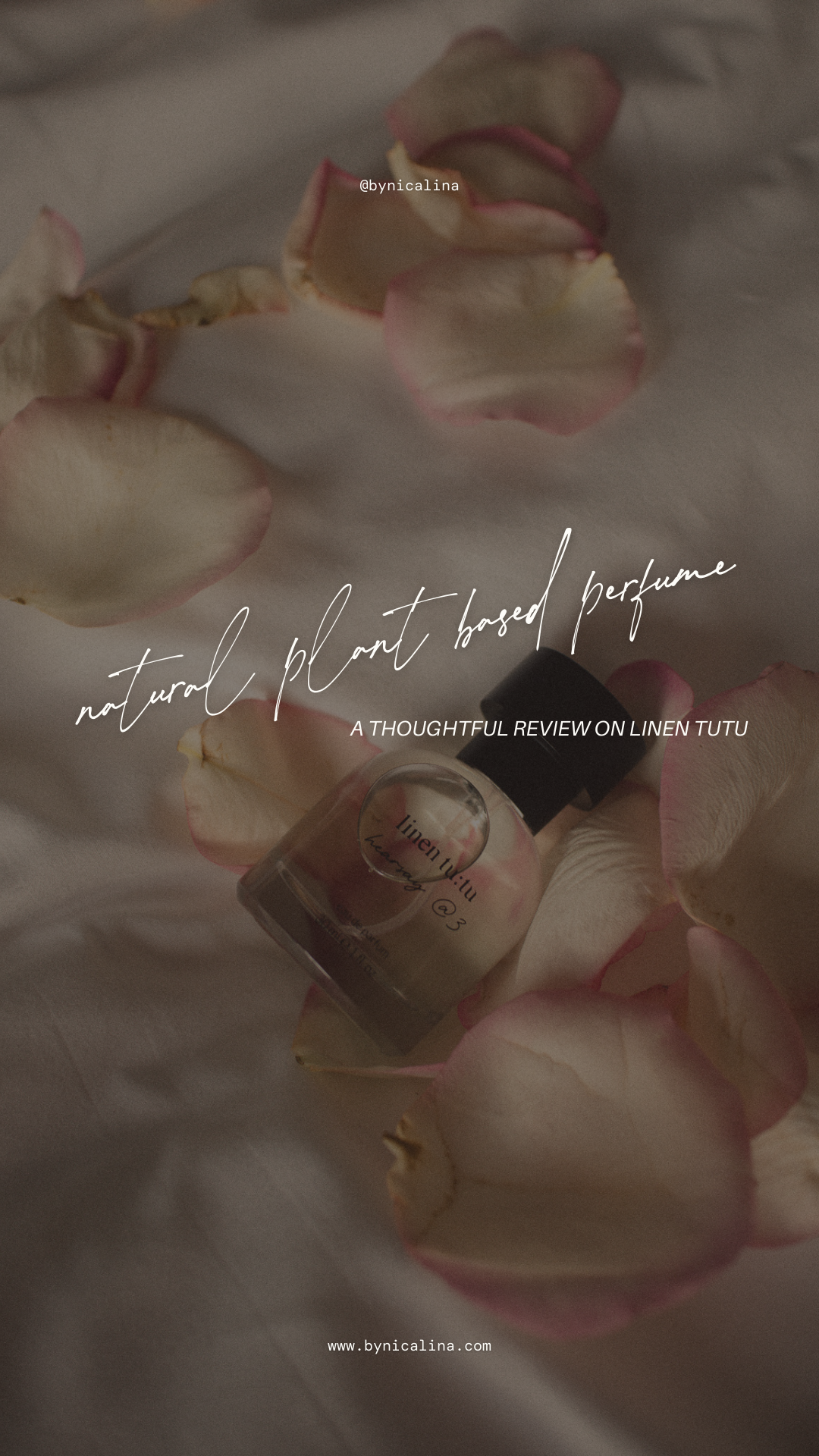I’m a few months away from turning 26 and from what I’ve noticed, life in your mid-twenties can really feel like you’re pedaling a bike uphill. But here’s something really important to remember – hitting the brakes for some self-care is like that refreshing breeze you need after so much pedaling. So, why should self care be a priority? For starters, it’s a serious stress-buster. Having your go-to remedy for de-stressing, unwinding, and refueling really brings back your zest for life. Plus, the confidence and happiness you get boost you get after? It’s so good, it’s like cheap therapy. Truly. Let’s talk about self care rituals and why they’re so important to have in your life.
Importance of Self Care Rituals
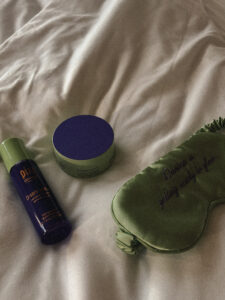
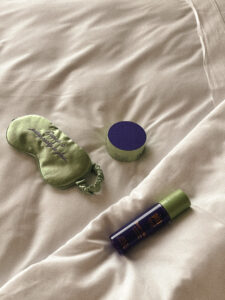

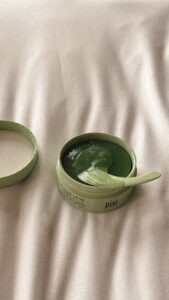
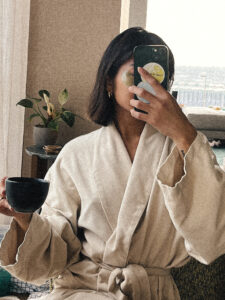
First thing’s first, let’s get this out of the way: Self-care is so much more than just your typical ‘me time’. It’s about taking a rain-check on life’s whirlwind chaos and telling the world, “Hey, I’m going to press the pause button real quick!” It’s about rebooting, rejuvenating, and ensuring you have enough energy to tackle all those crazy demands life throws your way.
Because let’s face it – life is busy. Life can get stressful and can throw curveballs at you. Life can shock you. And while all that is okay and inevitable, it is not okay to not allow yourself to breathe, relax, and take it all in. You’re allowed to feel these emotions, and the last thing you should do is bottle them up and try to keep pushing. Because it’ll all come biting you in the tush one day.
When it comes to crafting your ultimate self care ritual, there are some boxes to check off. Nothing Herculean, just some simple stuff for your body and mind. Regular workouts, practicing mindfulness, and eating healthy and balanced – it’s like the premium fuel your body needs.
But hey, it shouldn’t all be work and no play, right? Kick back, relax, and weave into your schedule the things you love – be it jamming to your favorite playlist, painting, hiking, or just a simple Netflix and chill session. Hanging out with friends or family, or maybe even a solo date? Yup, all that goes in the self-care mix too.
All these things pearled together create a safety net for your well-being, keeping you bouncing back from whatever life decides to throw at you. So don’t forget to let your hair down, pamper yourself, and take a break for you every now and then. You deserve it.

Creating a Calming Environment for your Self Care Rituals



Have you ever come across a saying that goes something along these lines: ‘Your home is your peace, so take care of it, and everything else will follow‘?
This saying, at its core, emphasizes the significance of a peaceful home life and a nurturing living space as a foundation for external success.
Your Home AKA Your Zen Den
Because let’s face it, how can you practice your self care rituals at home when you’re not at peace with the place you’re supposed to find rest and tranquility in? When your home is disordered or chaotic, it can directly impact your self-care practices and overall mental peace. I don’t know about you, but I cannot find peace in a messy home, it actually makes me erratic. It’s crucial that your home provides a calm and serene environment where you can engage in self-care rituals and truly unwind. After all, finding rest and tranquility in your own space is instrumental in replenishing your energy and maintaining your wellbeing.
When we refer to “home”, it’s not just about a physical location or a shelter, but the environment that we create within it. Home is where you feel truly comfortable, safe, and at peace. It is a sanctuary, a refuge from the fast-paced, sometimes chaotic world outside. I call my home, my “safe space” or the “zen den.” Why? Because it’s the place where I can be my true self without judgment, and a place for everyone else to feel the same as well. A serene, clean, and well-arranged home can have a significant effect on your stress levels, mentality, and overall well-being. It can also drastically affect your efficiency, mood, and ability to think clearly. That’s why it’s so crucial to ensure your home radiates tranquility; it directly influences your psychological health.
Here are a few ways to make your home into your zen den.
Step 1: Declutter & Organize & Clean
A cluttered physical space can often lead to a cluttered mental space. Start by clearing up your surroundings. This can involve getting rid of unnecessary items, ensuring things are in their rightful places, and organizing your belongings in a systematic way that is easy for you to follow. By doing so, you’re not only creating a more pleasing visual environment but also making it easier for you to focus on any task at hand without various things around you serving as distractions.
Some questions I ask myself before I throw something away are:
Is this item serving a purpose and do I use it at least 2x a week?
What is the emotional value attached to this item? Is it a sentimental piece connected with memories or experiences, or merely something occupying space without any personal significance?
Can this item be repurposed or reused in a different way, or can someone else benefit from it if I choose to donate or give it away?
Lastly, clean your space. A clean space is a happy space and a happy space is a happy mind. I love cleaning. It’s honestly a form of a self care ritual for me. I love the smell of my home after I do a deep clean. I’ve always stuck to using natural cleaning products, so my house doesn’t end up smelling like Clorox or bleach, but rather smells like lavender, eucalyptus, and anything that would smell like a garden. I have Chandler (my cute orange cat) at home, so I always have to be mindful of him too so he doesn’t react badly to anything.
Aesthetic Home Organization & Natural Cleaning Products

Step 2: Set the Right Lighting
Have you ever just walked into a spa and noticed how much the lighting affects your overall mood and the vibe of the entire place? Notice how they use soft, warm lights. Try and emulate that into your home by using softer, warm lights over harsh fluorescents. Adjustable lighting can also be beneficial as it allows you to customize the light level according to your needs or the time of day. A softly lit room can significantly reduce stress and promote relaxation. I also find that using aesthetic lamps can really elevate your home and make you feel good about your space.
Aesthetic Lamps for Your Safe Space

Step 3: Color and Nature
Remember that the colors around you also affect your mood. Opt for soothing, neutral colors like soft blues, greens, or browns. These are known to have a calming effect and can contribute to a tranquil atmosphere.
Including natural elements such as indoor plants, fresh flowers, or even a small water feature can bring tranquility to your space. They not only add a touch of life and color but also act as natural air purifiers and mood enhancers.
Step 4: Fragrance and Sound
Our senses of smell and hearing significantly contribute to our overall experience of an environment. Making use of essential oils can aid in relaxation and stress relief; consider scents like lavender, chamomile, or jasmine. Playing calming music or sounds of nature, such as waves or a gentle rain, can further help in creating a tranquil atmosphere. This can be especially useful in reducing stress and improving productivity if you’re working in the space.
Beyond the home, I also have a diffuser in my car! My mom gifted me the Aroma Ride from Saje Wellness for Christmas and it’s been a game changer for long drives. One of my self care rituals is to go on long drives and this just makes me so happy.

Step 5: Comfortable Textiles
Finally, add cozy textiles throughout your space to increase comfort. This could include items like plush throw blankets, comfortable pillows, or furry rugs. Not only do these make the physical environment more comfortable, but they also contribute aesthetically to making a space look more inviting and cozy.
Creating a calming environment is about more than just aesthetics—it contributes a great deal to mental wellbeing and productivity as well. By paying attention to even subtle details like these, you can transform any space into a real sanctuary.

Skincare Routine As A Self Care Ritual
Skincare is everything to me. It is one of my favorite self care rituals ever. I live and breathe skincare. The cool thing about having a skincare routine is that it’s a self care ritual that you can bring with you everywhere. You can do it while traveling, at a friend’s house, and at your parent’s house.
I cannot live without my skincare, and I have a large skincare collection to show for it. I feel so incomplete without it. It’s the best way to start and end my day, it helps me relax, and most importantly, it’s a great way to take care of myself. It’s like giving myself endless love through beautifully made products.
Step 1: Understanding Skincare
Skincare is not just about looking good — it’s a key part of overall health and well-being. Your skin is the largest organ in your body, so of course you should implement rituals to celebrate it and nurture it. It might seem daunting at first with the vast array of products available in the market, but developing a skincare routine doesn’t have to be complicated. At its core, it involves understanding what products work best for your skin type and using them consistently to achieve and maintain healthy skin.
Step 2: Identifying Your Skin Type
Your skin type might be dry, oily, combination, sensitive, or normal. Each type has its specific needs, which makes it essential to use products suitable for your skin type. For example, dry skin may need more intense moisturizing, oily skin might require oil-control and non-comedogenic products, and sensitive skin can benefit from products formulated without potential irritants.
Over time as I’ve gotten to know myself better, I’ve gotten to learn my skin and see how it has reacted and adapted to different products and environments over the years. I’ve learned which products to use in certain places (i.e. the mountains versus the beach), what brands to avoid (unfortunately, Super Goop doesn’t work well with my skin), and what brands to continue buying from (Naturium is seriously my favorite).
If you’re new to the skincare game, I recommend visiting an aesthetician and having them examine your skin.
Step 3: Skincare Essentials
Regardless of your skin type, there are four basic steps you should integrate into your skincare routine: cleansing, toning, moisturizing, and sun protection. Cleansing is fundamental in removing dirt, oil, and pollutants that accumulate on your skin throughout the day. It aids in unclogging pores and preventing skin conditions like acne. Toner helps restore skin’s pH balance, adds a layer of protection, and prepares your skin to absorb the moisturizer better. Moisturizer helps maintain your skin’s hydration level, prevents dryness, and can keep your skin looking vibrant and youthful. And lastly, and most importantly: sunscreen is an absolute must, no matter your skin type or the weather outside. Regular sun protection prevents premature aging, hyperpigmentation, and critical conditions like skin cancer.
Some of My Favorite Skincare Products

Step 4: Consistency and Self-Care
Having and maintaining a skincare routine is a form of self-care. Not only are you doing something positive for your skin’s health, but you’re also carving out time in your day for yourself. This continuous routine can be therapeutic and promote a sense of well-being and self-confidence, especially when you start noticing improvements in your skin.
Remember, a good skincare routine is akin to a good diet; short-term efforts might show immediate results, but it’s the consistent practice that will keep your skin healthy and radiant in the long run.
Mindfulness & Meditation
At their core, mindfulness and meditation are methods of practicing focused awareness and intentional relaxation to reduce stress, increase self-awareness, and promote emotional health. A book that I read that really helped me understand mindfulness and meditation was Good Morning, I Love You by Shauna Shapiro. This book really changed my life and my outlook on these two core values that I practice daily. Let’s talk about the two.
Tools to Enhance Your Meditation Practice

Mindfulness: Be Present in the Moment
Mindfulness is about training yourself to be present in the moment, fully engaged with whatever you’re doing at that exact time without getting distracted by past events or future anxieties. It’s about observance without criticism; being compassionate with yourself instead of being reactive or overwhelmed by what’s happening around you.
For a 25-year-old who’s continually juggling different facets of life – running a few businesses, relationships, self-care, etc. – mindfulness provides a way for me to alleviate mental clutter and appreciate each experience individually. Simply put, this is the art of creating a pause in your hectic days and checking in with yourself.
Meditation: A Tool for Mindfulness
If mindfulness is the overall approach or goal, then meditation is one tool to achieve it. Meditation involves sitting or lying in a comfortable position, closing your eyes, and focusing on either your breath, a saying, or simply observing your thoughts without engaging with them. I personally like to pick a card from my affirmation deck and continue repeating it while meditating.
When I was first starting, I liked to go on Youtube for guided meditations. You can also use the app Superhuman for this as well. Meditating is like a mental workout: the more you practice, the better you become at honing your focus and disregarding distractions. As Shauna Shapiro says, “What you practice grows stronger.”
The Benefits of Practicing Mindfulness and Meditation
Both mindfulness and meditation are known to have a wide range of benefits, including reduced stress, increased self-awareness, improved attention, better emotion management, and boosted overall well-being. It’s like hitting the ‘refresh’ button on your mind, giving you clarity and peace amidst the clutter of daily life.
The key to mindfulness and meditation is consistency. Just as you might work out regularly to keep your body in shape, consider mindfulness and meditation as a mental fitness practice to keep your mind sharp and calm. Integrating these practices into your daily routine could significantly improve your quality of life and mental resilience.
Using Exercise as a Self Care Ritual
Taking time for physical activity can play a crucial role in a self-care routine. Exercise is known to release endorphins, the body’s natural feel-good chemicals, which can help reduce feelings of stress and anxiety. Regular exercise also promotes better sleep, boosts self-esteem, and increases overall energy levels. Incorporating activities like walking, yoga, or dancing into your routine can be a great way to take care of your physical and mental well-being. Remember, finding an exercise that you enjoy is key to making it a sustainable part of your self-care routine.
5 Forms of Easy Exercise
Here are five forms of easy exercises that can be incorporated into your self-care ritual:
- Yoga: Combining physical postures, deep breathing, and meditation, yoga is an excellent exercise for stress reduction and overall wellness. It helps in improving flexibility, balance, and strength, while promoting mental tranquility.
- Walking: Simple yet effective, walking is a fantastic low-impact workout that can boost your mood, enhance heart health, and increase energy levels. Try to incorporate daily walks into your routine, ideally in an environment that you find calming and beautiful, like a park.
- Tai Chi: A serene workout for the mind and body, Tai Chi embodies slow, deliberate movements, meditation, and deep breathing. It’s an effective method to reduce stress, anxiety, and depression while improving your balance and coordination.
- Stretching: Incorporating a daily stretching routine can help prevent muscle stiffness and improve overall body flexibility. It can also help in reducing stress and promoting relaxation. You could stretch upon waking or before going to bed to relieve stress and ease into the day or night.
- Dancing: Dancing isn’t just fun—it’s also a great way to improve physical fitness and mental health. You can dance to your favorite tunes during study or work breaks to shake off any stress. It can be a joyful way to get your heart rate up, improve coordination, and strengthen your muscles.
Remember, the best part about these exercises is that they don’t require a gym or expensive equipment. You can easily do them at home with minimal space required.
Nourishing Your Body as a Self Care Ritual
Now that I’m in my mid-twenties, I’m in a stage of life where I’m establishing my career, exploring new opportunities, and thinking about the phase of my life where I’ll need to start thinking of my life in the long run. But while juggling these tasks, it’s easy for me to neglect my nutrition, which can have effects on my physical energy, mental performance, and overall health. I’m trying to get better at this facet of my self care rituals. So let’s talk about how you can nourish your body better.
Creating a Balanced Diet
To support your body and mind, your diet should provide a balance of major nutrients:
Carbohydrates: These provide energy for your brain and muscles. Opt for whole grains (like oats, brown rice, and whole-grain bread) for long-lasting energy and added fiber.
Proteins: Essential for repair and growth of body tissues, proteins also help to keep you satiated. Choose lean proteins (such as poultry, fish, tofu, and legumes) to get these benefits without excessive fat.
Fats: Healthy fats, particularly unsaturated fats like omega-3, are crucial for brain function and body health. Find them in foods like salmon, flaxseeds, walnuts, olive oil, and avocados.
Vitamins & Minerals: These are usually obtained from a balanced diet and are crucial for several bodily functions. Aim to include various colors of fruits and vegetables in your diet—a direct, fun way to get a wide array of vitamins and minerals.
My friend Mascha Davis wrote an incredible book called Eat Your Vitamins, which teaches you how to sustain and nurture yourself through being mindful of the foods you eat.
Keeping Hydrated
Water is as essential as any nutrient. It helps maintain the balance of bodily fluids, assists in digestion, absorption, circulation, transportation of nutrients, and maintains body temperature. Always keep a water bottle at hand—keeping hydrated can even help keep your skin looking vibrant and healthy!

Enjoying the Process
Nutrition is not about strict limitations or depriving yourself. It’s about finding balance, eating mindfully and enjoying what you eat. Even the occasional treat is entirely okay when enjoyed in moderation.
Making Good Nutrition Into a Habit
Creating a solid habit now, at the age of 25, can set you up for both short-term benefits and long-term health as you grow older. It’s all about adopting sustainable habits that can be incorporated into your day-to-day life.
Remember, caring for your body through good nutrition is an act of self-love that provides the energy necessary for you to pursue your passions and live life to the fullest. A good relationship with food can build a strong foundation for a healthy lifestyle!
Self-care Through Hobbies and Creativity
Another great way to practice self care is engaging in hobbies or creative pursuits. Participating in different hobbies and finding different avenues of creation brings me so much joy. This year, my goal is to join a creative class once a month. Whether it’s a calligraphy, creative writing, or pottery class, I want in. As someone who’s job is in the creative field, sometimes I get burnt out by my daily tasks. I’m literally creating everyday.
It’s nice to gain inspiration from other formats of creation. Beyond that, partaking in hobbies just make you feel better!
Stress reduction
In a fast-paced society like ours, stress is inevitable. Whether it’s from work, school, relationships, or other personal matters, the effects of continuous stress can build up and impact your mental health negatively. Engaging in hobbies such as drawing, painting, journaling, or reading allows you to take a break from the everyday hustle and fully immerse yourself in the task at hand. This focus and immersion, also known as a “flow state,” can help take your mind off the stressors, thus reducing your stress levels.
Improved Mental Well-being
Having a hobby provides an escape from daily routine and a chance to spend time doing something you genuinely love, offering a sense of peace and well-being. Engaging in creative activities challenges and stimulates your mind, promoting mental agility and reducing the risk of cognitive decline as you age.
Sense of Accomplishment
Not only are hobbies enjoyable, but they also provide a sense of accomplishment. Painting, drawing, knitting, and writing all result in a tangible product, something you can look at and say, “I made this.” This sense of achievement boosts your self-esteem and provides a feeling of satisfaction which can outweigh some of the pressures of everyday life.
Boosting Self-esteem and Productivity
When you successfully complete a project – be it a painting or a piece of writing – you’ll likely feel a sense of pride and accomplishment. This feeling can boost your self-esteem as it portrays that you are capable of setting and achieving goals. Moreover, completing creative tasks can give a sense of fulfillment which, according to the Harvard Business Review, can considerably enhance productivity levels.
Adding Joy and Relaxation
Finally, hobbies and creative activities are proven ways to increase happiness. They provide something to look forward to, and the act itself can be quite therapeutic. Taking the time for these activities allows you to relax and enjoy your leisure time, providing balance amid the busyness of life.
The Necessity of Social Connections in Self-Care
Taking care of oneself is highly important, and if you’re anything like me, you might primarily focus on career development, finding balance in all the things, or even independent living. Amidst these elements, having close and solid relationships play a crucial but undervalued role in self-care.
Your Support System is E V E R Y T H I N G
A strong support system is like an emotional safety net, ready to catch you during times of stress and adversity. According to research, individuals with a strong support system are better at coping with stress and have generally improved mental well-being. This system can include your friends, family, coworkers, or any other people who positively impact your life and help during challenging times. It is the best feeling in the world to be able to have my mom as the first person I’m calling when I need help with cooking a new Filipino recipe, or calling my best friend Anthony about some exciting news, or coming home to my boyfriend after a long, hard day. It really makes all the difference in the world.
Importance of Meaningful Relationships
Relationships are an investment, and more than just a casual interaction with different people. In fact, research suggests that maintaining deep, meaningful relationships can significantly enhance your overall emotional health. These relationships offer a chance for emotional expression, intimacy, and can fulfill the human inherent need for belonging. As a woman in her mid-twenties, I’m at a stage where forming lasting friendships and addressing emotional needs effectively can provide me with skills like emotional intelligence and empathy that’ll be beneficial throughout my life.
Joyful Activities with Friends and Family
Engaging in activities you love with the people you care about can greatly expand the joyfulness in your life. Whether it’s a movie night, a coffee outing, a baking session, a book club meeting, or a getaway trip, shared fun experiences foster bonding and generate positive memories. Such activities help combat feelings of loneliness and boredom, providing a sense of connectedness and joy.
Make Self Care a Priority
Making self-care a priority is essential, period. It’s important to set aside dedicated time for yourself, whether it’s a few minutes each day or a longer block of time each week. By prioritizing self-care, you can reduce stress, enhance your overall well-being, and improve your ability to handle life’s challenges. Whether it’s practicing mindfulness, taking a relaxing bath, or simply indulging in a good book, making self-care a regular part of your routine can have a positive impact on your life.
